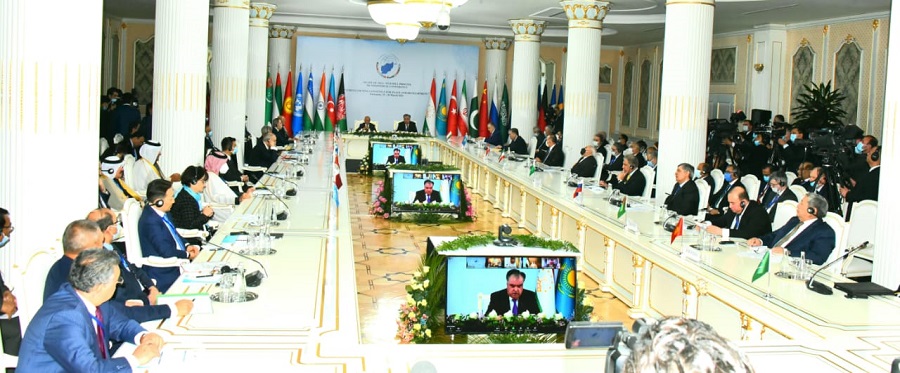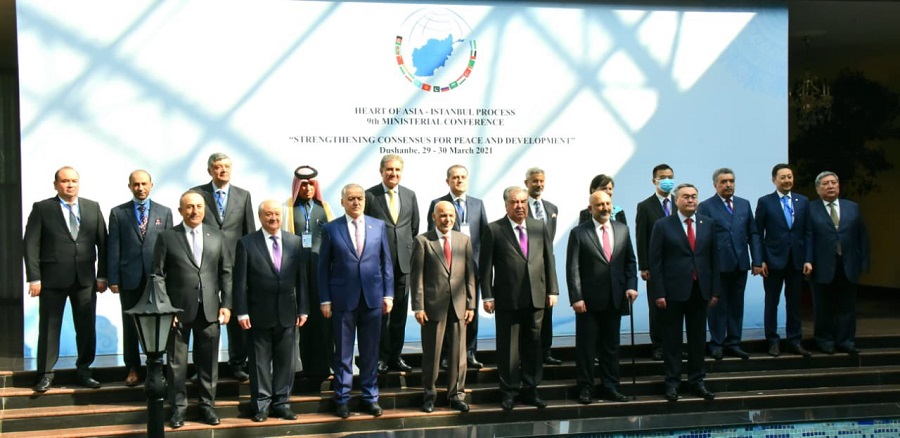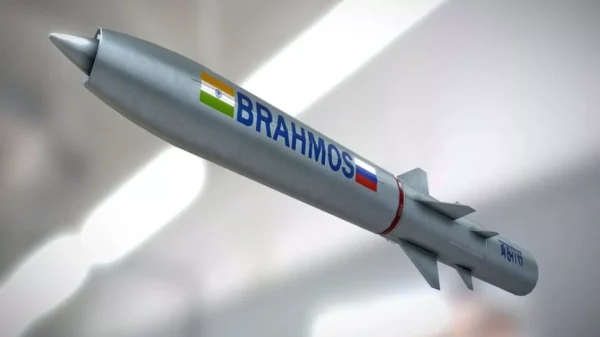ISLAMABAD: Pakistan and Indian foreign ministers may not have met on the sidelines of Heart of Asia-Istanbul conference in Dushanbe but the top diplomats on Tuesday avoided pointing fingers at each other in their speeches in a clearest indication that the two neighborsDushanbe, are looking to lower the rhetoric.
The speeches by both the foreign minister, Shah Mehmood Qureshi and his Indian counterpart S Jaishankar, were a departure from their previous statements. Unlike, previous sessions of Heart of Asia conference, this time both sides avoided using the platform to cast aspirations against each other.
The Foreign Minister, Shah Mahmood Qureshi, has said that Pakistan and India are heading towards a positive trajectory of ties in the aftermath of significant developments starting with the letter from Indian Prime Minister felicitating his counterpart on the Pakistan Day, which was responded today by PM Imran Khan.
In an interview in Dushanbe on Tuesday, Qureshi said the prime minister, while thanking the Indian prime minister, has reiterated Islamabad’s earnest desire to have peaceful ties with all neighbouring countries, including India. However, this requires resolution of all outstanding issues between the two countries, including the most important dispute over Indian illegal occupation of Jammu and Kashmir. He said PM Imran Khan, in his letter to his counterpart, said, “If India desires peaceful relations with Pakistan, New Delhi will have to create a conducive and enabling atmosphere.”
Referring to radical changes India introduced in the occupied territory on Aug 5, 2020 that confused and complicated the whole scenario, Qureshi said today a large segment in India feels those actions have proved to be counterproductive and have served to further alienate the Kashmiris. He said if India considers providing an enabling environment, Prime Minister Imran Khan had even earlier expressed his readiness to take more steps in that direction. “Islamabad would never shy away from dialogue as we fully believe that it will be suicidal for the two nuclear neighbours to engage in any confrontation.”
To another question, the foreign minister said the revival of Pakistan-India 2013 understanding on ceasefire at the LoC, Indian PM’s letter of felicitation on Pakistan Day and the fact that the Indian Foreign Minister Shiv Shankar Menon did not opt to criticise Pakistan at the Heart of Asia Conference, like on previous occasions, are positive and productive developments. He said the revival of ceasefire at the LoC is a productive development, which would benefit the Kashmiris who have also praised the development. Regarding his meetings with his Indian counterpart, Qureshi said neither such a meeting was scheduled nor he received any such request.
To a question about the Afghan peace process, FM Qureshi said Afghan President Ashraf Ghani discussed ‘a new proposal’ with him in Dushanbe, which needs to be studied and explored. The foreign minister said, “It needs to be seen how the Afghans, the Taliban and the regional countries respond to that proposal after which Islamabad would be able to give its viewpoint.”

Qureshi said Pakistan’s critical role for facilitating the Afghan peace leading to Doha Peace Agreement and the intra Afghan dialogue has been widely acknowledged globally. In meetings during the Heart of Asia conference, all the countries were appreciative of Pakistan’s approach and direction.
“We will undoubtedly continue to play that role but it is now time for the Afghans’ to show flexibility to determine their country’s future. We are strictly observing non interference in their affairs. Islamabad’s only desire is for a peaceful and stable Afghanistan, which primarily would help Kabul and consequently Pakistan and the wider region. We want investments to flow into the regional economy and are looking forward to regional connectivity to help boost Pakistan’s economy, which is only dependent on peaceful and stable Afghanistan.” He added: “We will play whatever role Islamabad can to help achieve those objectives.”










